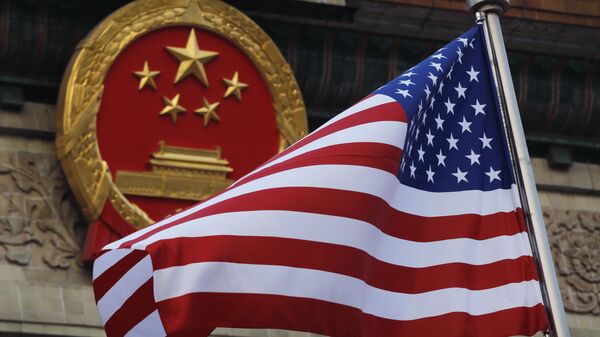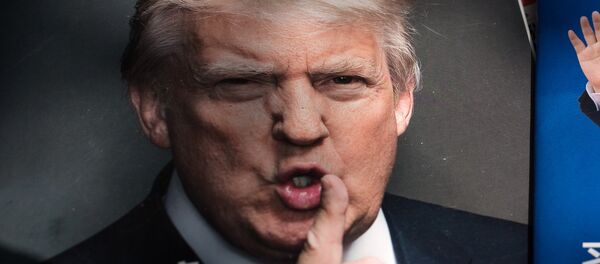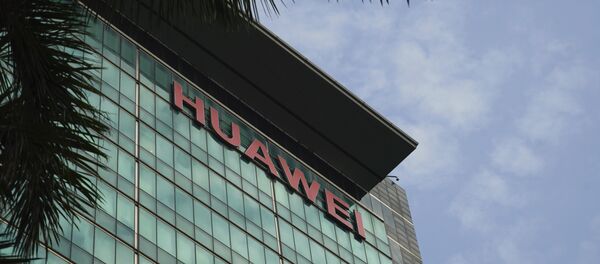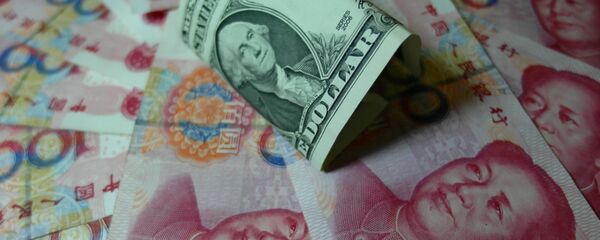US tariffs on 200 billion dollars’ worth of Chinese goods were expected to increase from 10 to 25 per cent. Currently, the US has additional duties on 250 billion dollars’ worth of Chinese goods. Media reported that Chinese and US officials have held three rounds of talks since December. On Friday, Trump told reporters that the biggest decisions and even smaller decisions will be made by President Xi and himself.
Meanwhile, a report by Washington-based Tax Foundation said that current tariffs will cost US economy over 30 billion in the long run, will result in the elimination of more than 94 thousand full-time American jobs and will cost each US taxpayer 146 dollars in the after-tax wage decrease. Sputnik has discussed Trump's decision to further delay increasing tariffs on Chinese goods with Dr. Yixiao Zhou, lecturer of economics at the Curtin Business School.
Yixiao Zhou: We know that, from the recently released data on retail sales and manufacturing production in the US, we can see weak performance in the US economy.
So, looking into 2019, the fiscal stimulus in the US may run out of steam. And we also know that the Federal Reserve in the US actually changed their tone and the monetary policy will be less tightened than previously expected with one or no great hikes looking forward. All this suggests that the US economy is weakening, looking into 2019.
So, if there is a further rate hike to 25 percent, that would deal a further blow to the US economy; so, I think the motivation to avoid a further rate hike partly is due to the consideration for the US domestic economy.
Sputnik: Does this indicate that the two sides will be able to make progress in negotiations as Trump tweeted?
Yixiao Zhou: I think that it does suggest progress in negotiations. This trade conflict between the US and China actually hurt both sides, at least as we see in the short run. So, the progress in negotiations, as tweeted by Trump, I think looks real; and I think it looks [like] very real progress in negotiations.
Yixiao Zhou: That’s an important question, I think, in the future. Chinese investment into the US, what the impact of that is, is a complex question. We do need accurate and objective research on this issue.
For example, when you think about the effect of Chinese investment into the US, you need to look at the entrance of Chinese firms — does that actually nurture or actually reduce the competition in the US economy and then further affect the efficiency of production of US firms?
So if you observe a positive effect, [then] that may lead to benefits in the US economy. And also you need to look at the effect of the employment creation by Chinese firms. So, all this suggests that this question is fundamentally important in the long run; but it’s a complex issue, it needs very accurate assessment on various dimensions.
Sputnik: How high are the chances that President Trump will launch a trade war with the European Union, namely the carmakers, after he settles his scores with Beijing?
Yixiao Zhou: That’s a hard question. We have seen that the negotiation between the US and the EU on the trade deal is actually a bumpy road. Earlier they had agreed on settling this issue, but now there is some discussion on a further rate hike on the automobile sector in the EU; so, it looks like the negotiation is still going on.
I think the fact that there is a trade conflict between the US and China and [that] it has a significant negative effect will actually reduce the chance that there will be a trade conflict between the US and the EU down the track.
Sputnik: If this happens and if Europe responds with its own tariffs on US goods, who would benefit from this trade dispute the most? It was reported that Caterpillar, Xerox and Samsonite could be affected.
Yixiao Zhou: Yes. I think in actual fact we have heard about in recent times the declining performance of these global multinationals.
On top of that, [if] there is a two-sided trade conflict between the EU and the US leading to rate hikes, then that will further reduce the market potential faced by these global multinationals.
I think that will make their performance worse if this really happens.
Yixiao Zhou: I haven’t looked in detail at that, but I think there is discussion, I think there is [a] report, but we need to be careful whether the source is reliable, that the Huawei issue in the process of being solved as well; but [it’s] mainly focused on trade and the economic impact of the trade conflict. On the Huawei issue, I am not that sure about how it will evolve down the track.
Views and opinions expressed in this article are those of Yixiao Zhou and do not necessarily reflect those of Sputnik.







